This week I'm at the mHealth Summit, an event bringing together research (academic), technology (business), and policy (NGOs and government). On Tuesday (November 9) I'll be on the panel, Validation and Practical Deployment of Wireless Health, at 11:30 (Room 102 A & B). I'll be touching on the differences between verification and validation testing, and the challenges of simulated validation testing. The panel will be discussing what constitutes sufficient objective evidence for validation testing and different approaches to validation from both a technical, clinical and business perspectives.
The event is just kicking off as I'm writing this (loud techno music before the speakers come up to the podium). Focus is squarely on wireless broadband (cell phones) offering ubiquitous connectivity. Applications discussed provide education, diagnostics, therapy delivery and monitoring.
The Twitter hash for this conference is #mhs10. The opening keynote is being held in a full ballroom at the Washington DC Convention Center. There are an estimated couple thousand attendees-- I'll provide an official number later.
Dr Francis Collings, the 16th director of the NIH presented the first keynote. He provided a survey of sample mhealth applications, all in the research phase: lens free microscope -- attached to cell phone, of course -- for detecting contaminates in drinking water, a patient worn environmental monitor for hydrocarbons, an activity and diet monitor that provides objective evidence (as opposed to the fantasy patient's typically include in conventional diaries), and the real-time adherence monitoring for HIV antiretroviral therapy in Uganda (generates signal when pill box is opened). Dr Collins also mentioned a new NIH summer institute on mobile technology research to enhance health. This will be a 5 day training session for 25 junior investigators, in La Jolla. More info here.
Todd Park, CTO of HHS was up next. Todd was a founder of Athena Health and recently found his way to HHS. He provided a survey of the mhealth efforts of HHS. One service he described is Text for baby, a free SMS service for prenatal care that provides educational information on prenatal care over the term of a pregnancy. Over 100k moms have registered with service. A new Secretary's "text for health program" will extend this texting service beyond prenatal care to other health issues.
Probably the biggest news this morning is that HHS is currently studying reimbursement policy to revise incentives for mhealth. In many cases, providers are either not incented, or disincented to utilize or support mhealth applications. This revision of reimbursement policy will ensure that financial incentives are aligned with the utilization of mhealth technology that will reduce costs and improve care.
Todd closed his presentation with the promise that in future, health data will be available much like weather data is available from NOAA. The URL will be healthdata.gov.
Another meaty point was the need to improve validation of mheath applications. Taking 18 or 24 months (or many times, longer) to validate the value and efficacy -- the classic huge multi site randomized clinical trials -- of mhealth applications is inefficient and poorly suited for a technology that changes as rapidly as it does. Deciding on a more suitable approach was described as a consensus building effort. Perhaps we need a multi-site randomized clinical trail on the most likely validation methods... just kidding.
Pictured is the Wocket open source wireless sensor and an Android smart phone acting as a gateway device.


Recent Comments